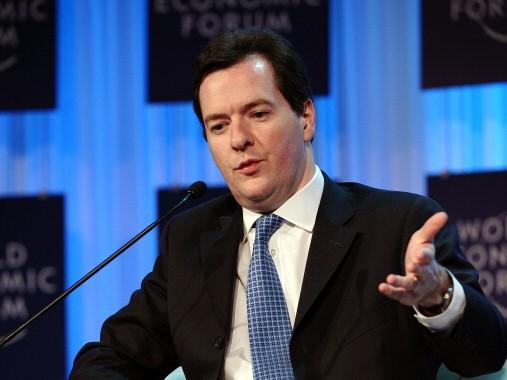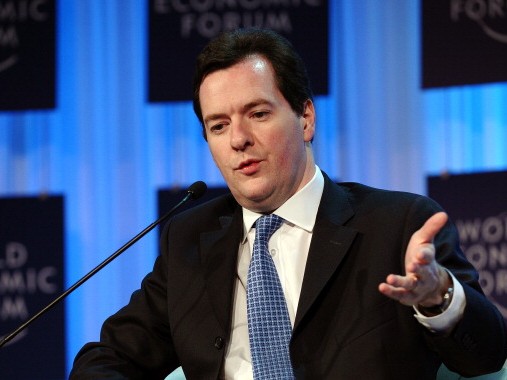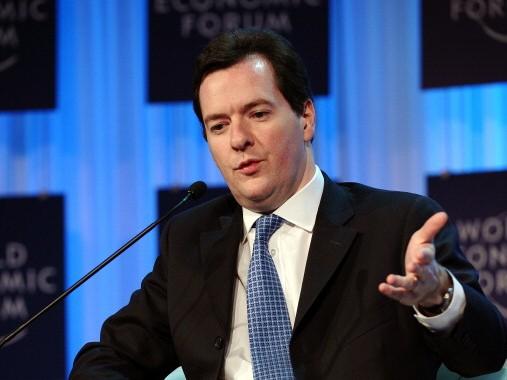

Britain received another dose of bad economic news on Wednesday with the release of new unemployment figures just the day after the government was busy trying to downplay Moody lowering its outlook for the U.K.
The figures show a 0.1 percent rise in the employment rate for the last quarter of 2011, to a new high of 8.4 percent. That makes it slightly higher than the U.S. rate of 8.3 percent, which is the lowest the United States has seen since February 2009.
Since the recession started in late 2008, the U.K. has been the confident poster boy of the national austerity drive. As other countries have struggled with crippling sovereign debt and seen their credit ratings fall, Britain has maintained its AAA credit rating—the highest possible.
On Monday, Moody’s took a step toward downgrading that rating by switching its assessment of the U.K.’s economic outlook from “stable” to “negative.” It did the same for France and Austria.
Britain’s Chancellor (finance minister) George Osborne tried to dismiss suggestions that Moody’s rating indicated his austerity measures were not working.
“For me it’s a reality check for the whole political system, that Britain has to deal with its debts,” Osborne said on Tuesday. Osborne said that the assessment by Moody’s was “the clearest possible warning” that any departure from the severe austerity measures would lead to “an immediate downgrade.”
In its statement, Moody’s said, “The primary driver underlying Moody’s decision to change the outlook on the U.K.’s AAA rating to negative is the weaker macroeconomic environment, which will challenge the government’s efforts to place its debt burden on a downward trajectory over the coming years.”
Moody’s said the country’s extensive trade and financial links with Europe make it highly vulnerable to the eurozone crisis.
Osborne told the BBC Today program, “We cannot waver in the path of dealing with our debts and here is yet another organization warning Britain that if we spend or borrow too much we are going to lose our credit rating but, more importantly, what that leads to potentially is a loss of investor confidence in our economy.
“It’s yet another reminder Britain doesn’t have some easy route out of the economic problems.”
Nevertheless, Osborne tried to reassure Britons by adding, “I don’t see this false choice between growth and dealing with your debts. If you don’t deal with your debts, you will not have growth.”
Ed Balls, the opposition finance critic, said that Britain needed a plan for growth not just debt reduction, and it was this lack of growth that was the cause of the downgrade.
“Moody’s is clear in its statement that the primary reason for Britain’s negative outlook is ‘weaker growth prospects,’ which are making it harder to get the deficit down,” Balls told the BBC.
“With our economy now in reverse, unemployment at a 17-year high, and 158 billion pounds [$248 billion] extra borrowing to pay for economic failure, the case for a change of course and a real plan for jobs and growth is growing by the day.
“That means tough decisions, but unless you’ve got growth, if your plan is unbalanced, it becomes self-defeating. ... Today is the first evidence that even the ratings agencies are waking up to the fact George Osborne’s plan’s not working.”
The U.K. has always maintained its triple-A debt rating, which means demand for government bonds is high and borrowing costs are kept low.
The financial crisis has seen many nations lose their triple-A status in recent months, most notably the United States, which was cut by Standard & Poor’s in the summer to AA+. Last month S&P downgraded France and Austria to AA. On Monday, Moody also lowered the ratings of Italy, Malta, Portugal, Slovakia, Slovenia, and Spain.





